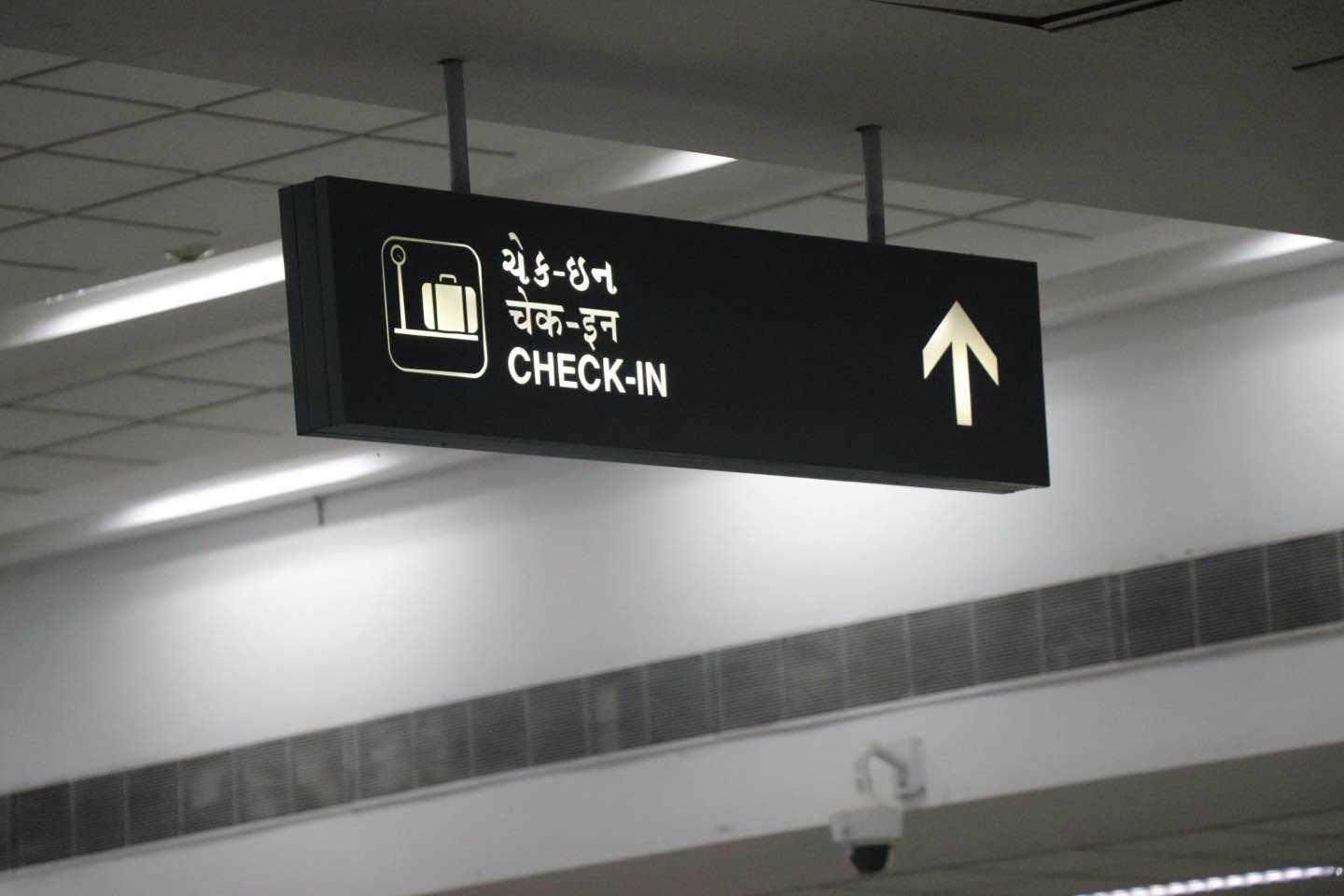Key Takeaways
• German tourists’ U.S. bookings fell 15–20% since February 2025 due to increased detentions at the border.
• Germany updated its travel advisory, warning even small infractions may lead to detention or deportation.
• Cases of lawful visitors detained have prompted fears, especially among those with immigrant backgrounds.
A growing number of German tourists are reconsidering or canceling their planned trips to the United States 🇺🇸. This sudden change in travel behavior comes after several high-profile cases where German citizens were detained or denied entry at the border, even though they held the correct documents. The developments have led to an updated travel advisory from the German government and a noticeable drop in bookings with American tour operators. These events reflect rising fears of unpredictable treatment, including possible harassment or lengthy detention and have wider effects for people and businesses in both countries.
Sharp Decline in German Tourists Visiting the United States

Since early 2025, the number of German tourists booking trips to the United States 🇺🇸 has dropped sharply. According to reports from several major tour operators, there has been a 15–20% decrease in new bookings from Germany since February 2025. This reduction has been described as “noticeable” and is directly linked to fears about detentions at the border and the uncertainty travelers now feel about entering the country—including those with all their paperwork in order.
Many Germans who once looked forward to visiting New York, California, or Florida are now viewing the United States 🇺🇸 with hesitation. The request for American travel information has also decreased, showing that the fear is affecting potential travelers at every stage—from planning to making final bookings.
What Is Causing This Change?
The shift in German tourists’ feelings about traveling to the United States 🇺🇸 is linked to several key incidents and government decisions. In early 2025, news broke of multiple German citizens being denied entry at U.S. borders and placed in detention, sometimes for weeks at a time. This happened even though these travelers had valid tourist visas or ESTA (Electronic System for Travel Authorization) approvals, which are required for short visits.
These detentions were not limited to those who acted suspiciously. In fact, many travelers said they followed all rules and answered all questions truthfully. Incidents have included:
- A Berlin tattoo artist held in detention at a land border after presenting valid documents.
- A long-term green card holder facing a harsh interrogation and days in detention because of a dismissed misdemeanor from many years earlier.
Stories like these are shared widely in German and international media. The message reaching potential tourists is clear: even minor mistakes or old issues in your past can bring serious trouble at the U.S. border.
The Government Response: New Travel Advisory
In direct response to these incidents, Germany’s Foreign Ministry strengthened its travel advice for citizens hoping to visit the United States 🇺🇸. While the ministry stopped short of issuing an official travel warning, the updated advisory now warns that even small infractions—like giving the wrong information about your trip or staying a day too long on your visa—can lead to arrest, detention, or even deportation.
The advisory also stresses an important but often overlooked fact: having an ESTA or visa in your passport does not guarantee that you will be allowed into the United States 🇺🇸. The final decision rests with the border official you meet upon arrival. According to information cited by VisaVerge.com, this warning has unsettled many travelers who now worry about being turned away or held for questioning without a clear reason.
Focus on Certain Groups: Who Feels Most at Risk?
Reports suggest that German citizens with immigrant backgrounds feel especially vulnerable. Many fear they could be “profiled” or treated more harshly by border authorities, even if their documents are correct and their trip is for leisure. For these travelers, the risk of being treated unfairly—due to their name, place of birth, or appearance—feels higher now than ever before.
This anxiety is not limited to new tourists. Even some Germans who have lived in the United States 🇺🇸 for years and hold green cards are now thinking about returning to Germany 🇩🇪. They feel unsure about whether they can safely leave and re-enter the country in the future, particularly after hearing about lawful residents being detained and grilled about minor past issues.
What Are the New Risks at the U.S. Border?
According to Germany’s updated travel advisory and evidence from recent cases, the following risks are being highlighted for travelers:
- Detention or denial of entry even with valid documents (visas or ESTAs)
- Lengthy questioning or harsh interrogation about past legal issues, even if those issues were dismissed or minor
- Detention conditions described as uncomfortable or stressful, with very limited communication allowed
- Deportation at the discretion of border officers, sometimes with little explanation
This list is making many people rethink whether a trip to the United States 🇺🇸 is worth the risk of legal trouble and personal distress.
Changes Under President Trump’s Administration
The growing anxiety among German tourists comes at a time of tougher immigration enforcement under President Trump’s second administration. There are several important policy and practical changes shaping this environment:
- Border officials are given greater authority and more room to interpret rules as they see fit. This increases the risk that different travelers could be treated differently.
- Even lawful residents, such as green card holders, are experiencing stricter checks and longer interviews—sometimes over very old matters that were legally resolved years before.
- Immigrants and dual nationals feel greater pressure, fearing that their status may be questioned or challenged on what they see as weak or “baseless grounds.”
For people thinking about travel and business trips, this means more uncertainty about what to expect at the border. As media coverage of detentions grows, more travelers are asking whether they can trust that their rights will be respected.
Real-Life Stories Caught in the Spotlight
The media in both Germany 🇩🇪 and the United States 🇺🇸 are filled with accounts of travelers caught up in these new border challenges:
- The Berlin tattoo artist’s case quickly spread online, with many other potential tourists discussing it on social media and travel forums. Their main concern: “If this can happen to someone who did nothing wrong, it could happen to anyone.”
- The case involving a green card holder stopped and detained over a minor, old legal case set off even more warnings for long-term, lawful residents thinking about visiting family or traveling for work.
These stories, although described as “isolated” by officials, have a big effect on public opinion. Many travelers feel that the risks may be greater than suggested, especially because so many recent reports appear in well-known newspapers and TV programs.
Industry Reactions: Tour Operators Feel the Pinch
American and German tour operators who rely on international travelers are feeling the effects of these incidents. Bookings for group trips, vacation packages, and guided tours from Germany 🇩🇪 to the United States 🇺🇸 have fallen sharply since February 2025. Travel agents report that customers are asking extra questions, demanding reassurance, or canceling entirely because they do not want to take chances with their holiday.
According to one large German travel company, “What used to be straight-forward travel is now seen as a risk many are unwilling to take. Customers want clarity and guarantees, which we cannot offer right now.” The industry expects that unless there is some clear improvement, the decrease in bookings will continue into the summer and autumn travel periods.
Economic Impact: American Businesses Face Setbacks
The drop in German tourists hurts more than just travel agencies. Many local businesses in the United States 🇺🇸 depend on the spending of international visitors. When fewer German tourists come, hotels, restaurants, and attraction operators feel the loss. This is especially worrying in big cities like New York, Los Angeles, and Miami, where tourists from Germany 🇩🇪 are a key group of clients.
Some businesses are asking U.S. travel authorities to clarify the rules and make entry procedures more welcoming for law-abiding tourists. They argue that clearer information and fairer treatment could rebuild trust and bring back lost business.
Political and Social Context: Why Now?
The spike in border detentions and updated travel advisory for German tourists come at a time when President Trump’s administration is focusing on stricter immigration policies. Officials say that new steps are needed to protect national security, but critics worry that the rules are being enforced in ways that are too harsh or too unpredictable.
Debate continues between those who see strong border enforcement as necessary and those who feel it turns away visitors, including tourists who simply want to spend their money and enjoy American culture. The current tension reflects wider questions about how the United States 🇺🇸 balances security and openness in its immigration system.
Germany’s Official Advisory: What Tourists Must Know
Based on the most recent update, the German Foreign Ministry strongly urges travelers to:
- Double-check all travel documents before departure, making sure all details are correct and up to date.
- Honestly answer all questions from border officials, avoiding exaggeration or misleading information.
- Be aware that previous legal problems—even those resolved or dismissed—could be discussed or used as a reason to deny entry.
- Understand that border officers have full power to decide whether to allow entry, regardless of visas or authorizations.
The full text of the advisory is available on the official German Foreign Ministry website. The message is clear: “Anyone entering the United States 🇺🇸 must be prepared for strict checks. Holding valid documents does not ensure entry.”
What Can Travelers Do to Protect Themselves?
For German tourists deciding whether to travel to the United States 🇺🇸, taking the following steps might reduce risks:
- Learn about U.S. entry policies in detail by checking up-to-date resources, including the U.S. Department of State travel advisories.
- Plan trips around potential delays at the border, allowing for extra time and flexibility.
- Keep copies of all documents, including proof of hotel bookings, return flights, and travel insurance.
- Avoid bringing items that could raise suspicion or confusion among officers.
- Prepare to explain the reason for the trip clearly and honestly at the border.
While these actions may help, even careful preparation cannot guarantee smooth entry. This is the core reason for many German tourists’ current hesitation.
Looking Ahead: What the Future Holds
Tour operators and industry experts say that unless perceptions of risk go down, the number of German tourists coming to the United States 🇺🇸 could stay low for some time. Some hope that better and clearer information from American and German authorities, or positive reports from returning travelers, could help restore traveler confidence.
For now, questions remain:
- Will the United States 🇺🇸 adjust its approach to border controls?
- Will German tourists change their minds as new information comes out?
- How will American businesses adapt if this trend continues?
The issue is not only about tourism, but also about trust and the image of the United States 🇺🇸 as a travel destination.
In Summary
The sharp decline in German tourists traveling to the United States 🇺🇸 is rooted in growing fears of detention, unpredictable border experiences, and confusing or harsh enforcement of immigration rules. Updated government advisories and media reports support these concerns, while clear effects are showing in both the travel industry and personal travel plans. As reported by VisaVerge.com, unless solid steps are taken to address these fears, the United States 🇺🇸 may continue to see fewer German visitors in the months ahead.
German tourists considering a trip to the United States 🇺🇸 should read the latest travel advisory, follow official guidance from both governments, and weigh the risks before making plans. For those in the travel industry or American hospitality sector, the current situation is a reminder of how quickly travel trends can change based on perceptions of safety and welcome at the border.
Learn Today
ESTA → The Electronic System for Travel Authorization, a U.S. travel permit required for many short-term visitors from eligible countries including Germany.
Travel Advisory → An official government notice providing information and warnings about traveling to specific countries, highlighting potential risks and requirements.
Green Card Holder → A non-citizen who is legally authorized to live and work permanently in the United States; often referred to as lawful permanent resident.
Border Officer → A U.S. government official responsible for deciding who may enter the country at its entry points.
Detention → The act of holding someone in custody by authorities, often at the border, sometimes for lengthy periods pending further review.
This Article in a Nutshell
Fear of unpredictable U.S. border treatment has sharply reduced trips by German tourists. Media coverage of detentions, even with correct documents, led to a 15–20% booking drop. Germany’s updated travel advisory warns that minor errors can bring detention, affecting both travelers and the travel industry between the two countries.
— By VisaVerge.com
Read more:
• Malta’s Golden Visa Program ordered shut by European Court of Justice
• US Embassy warns Indian citizens of strict penalties for visa overstays
• NCAPA Bombshell: Half of US Visa Losses Hit Indian Students
• Kevin O’Leary Defends Refugee Status for White South Africans
• Oklahoma Latino Caucus, conservatives unite over family separation concerns








